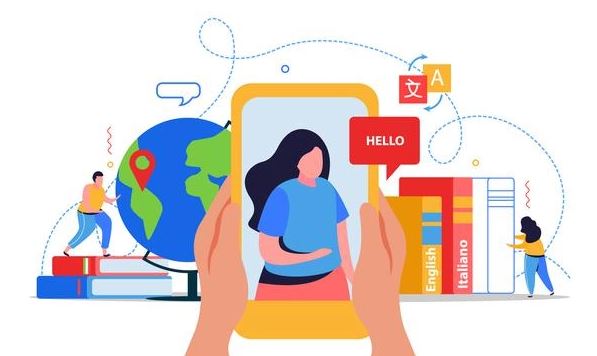Healthcare API Ecosystem- A Game-Changer In Health Domain
5 min read
A few years back, exchanging data among each other was somewhere hard to crack. For Example- A doctor needs some past medical history of a patient to treat him well and getting hands-on such data would take ample time and at times, it was difficult to get that. To address this issue, the introduction of inoperability came in 2020 emphasizing the seamless flow of information in the health domain. Now you might be getting confused with the term “healthcare API”. Right? So, here’s what we discuss- the Healthcare application programming interface(API) is nothing but a set of standards that enables software to communicate with each other. APIs play a significant role in the exchange of healthcare data, be it medical research, data analytics, or innovative ways to access the EHR.
In this write-up, we’ll discuss what is healthcare API as a service & its importance for the healthcare industry.
Three-Types of Healthcare API
In the Healthcare domain, there are three types of API i.e. internal, external, and third-party APIs.
Internal API
An internal API is the one that is created within healthcare enterprises to increase interoperability, analytics visibility of applications, services, efficiency, or digital tools. This may include building APIs on top of local storage servers, homegrown patient-centred apps, or clinic management software.
By building APIs across the internals IT resources can simplify their management in a healthcare organization. This allows them to track and manage the entire system from one single API management solution. Moreover, some of the healthcare enterprises also develop their internal tools so that they may be available for public consumption.
2. Externa APIs
At times, a healthcare organization will create APIs for external consumption i.e. doctors, partners, insurance providers, or application developers.
For example- The symptom checker tool is available for external consumption. This tool aims to improve brand recognition and their services.
3. Third-party
The third-parties APIs are those which exist outside the organization. These public APIs are often built for healthcare companies to enhance the digital offerings for their patients.
For Example– Health insurance companies often consume Samsung health, Google Fit APIs, and Fitbit to sync their customers with their fitness activity with their insurance account so that they can redeem discounts or some rewards.
Importance of healthcare API as a service In the Medical Domain
API has significance in the healthcare sector because it makes it hassle-free for patients and providers to get data and share information. However, this allows patients to access their electronic health records. Furthermore, providers are also allowed to share EHRs with other providers securely and efficiently.
In the healthcare sector, APIs are important because they enable healthcare organizations to share information securely and combine application functionality, services, and data sources rapidly. Healthcare companies combine a wide range of systems, ERPs, software, and databases. Due to this, things get messy if your organization has inappropriate management. Additionally, healthcare companies have sensitive consumer health data which is further heavily regulated and secured. This poses major security and interoperability challenges. Historically, this has stifled innovation in healthcare.
Healthcare companies
But Now onwards, APIs have embraced digital transformation and they have met the expectations of consumers by offering them a digital patient experience. However, it was not possible to view a chart on a mobile device a few years back. Likewise, asking people to forward the digital chart or test reports of patients might have brought forth security risks. APIs allow insurance providers, healthcare companies, and HealthTech startups to create relevant customer-centric experiences. With APIs, companies can stitch services and features together without the need to migrate the entire program or database.
The Challenges Associated With Healthcare API Ecosystem Services
Everyone knows the importance of in-depth analytics and data or information needed in making digital products. Without ample data, launching a technology will be nothing but a dream. However, this challenge has been solve with the emergence of Healthcare API as a service. But there are still more challenges be it budget, security, or more in the implementation of API services in an organization. And, this makes it difficult for some of the companies to adopt API technology to improve existing services and brand image. Healthcare application programming interface(API) is nothing but a set of standards that enables software to communicate with each other.
The Work Culture
When an API is introduce in a health organization, patients also get some access to specific data and also have the power to generate data from their end. Therefore, it creates some anxiety for some companies due to so much incoming flow of information. Some of the healthcare enterprises also develop their internal tools so that they may be available for public consumption
High-Fortune Costing
Developing an API in the health domain is somewhere hard to crack for those who are not so deep-pocket. Simply, these are out of budget for some organizations, and they end up with APIs that traditional data sharing is complex. It involves high-fortune costing; however, it may reach $20,000. Doesn’t it seem expensive?
Privacy & Security
When API services are introduce in the Health domain, it’s obvious that people’s data sharing and privacy issues will go hand in hand. However, personal health information is quite sensitive. Subsequently, exchange information is a major concern in API because, for the protection of this medical information, they have some additional standards that one needs to follow.
For Example- OAuth2.0 and OpenID Connect, it is use to authenticate and authorize access via APIs.
Final Thoughts
If you are planning for an organized Healthcare API Ecosystem, DigitalAPICraft is the one to reach out to. With them, you can introduce Healthcare API services at the minimum affordable budget. As they offer you automated tools. Note down that, API provides you assurance of longevity from 2 to 3 years from now. Double your business growth. We help you to convert your digital challenges to competitive advantages and get hands-on higher returns from your API programs. APIs are important because they enable healthcare organizations to share information securely and combine application functionality, services, and data sources rapidly. Have any questions? Want to know more about their products? Get In Touch With Our Team Today!!






